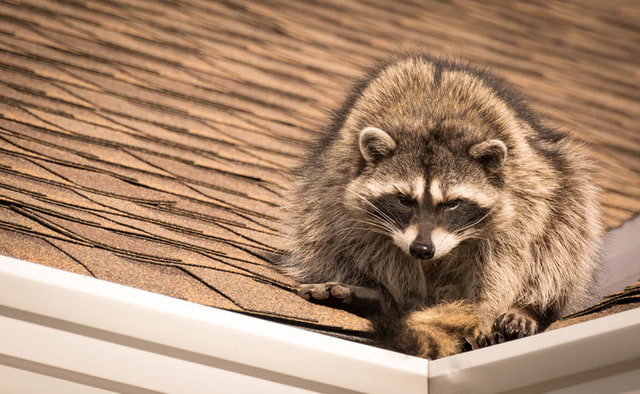Raccoons often live in urban areas, which is why it is common for them to invade your home. Your home is particularly appealing if you have a chimney. Chimneys are similar to big, hollow trees in that they provide a safe place where raccoons can create a nest and live. Unfortunately, having one in your chimney can create problems. There are ways to remove them from your chimney, though.
Approaching it the Correct Way
First, you want to make sure you approach raccoon removal the correct way. You should never attempt to build a fire to chase the raccoon out. The raccoon is more likely to climb down into the fireplace rather than up and out of the chimney.
Also, building a fire in your fireplace could harm the raccoon, which is highly frowned upon, and even illegal. Wildlife are under the protection of various codes, laws, and regulations. Therefore, using any method that might harm the raccoon is not in your best interest.
Instead, you could attempt to use odor deterrents, such as predator urine. However, many homeowners find the smell displeasing. Also, there is no guarantee that predator urine will work to sway the raccoon to vacate your chimney.
Hiring a Professional
In all honesty, you will find several DIY tips for raccoon removal from your chimney. However, your best bet is to call a professional. A professional raccoon removal can use methods that are legal and safe to properly remove critters from your chimney.
Typically, the professional will use either a live trap or a pole that extends into the chimney and captures the raccoon safely. Afterward, the raccoon will be removed from your property and released a distance from your home in a safe and appropriate location.
A raccoon that builds a nest in your chimney may also have babies. The professional will also work to remove the babies. Both the mother and her babies will remain together when removed from your home so as not to distress the babies or cause them harm.
No matter how tempting it might be to take the DIY approach, you should never do so. In doing so, you could find yourself in violation of laws and regulations. Also, the DIY approach is not necessarily a money saving move.
If you take the DIY approach, you may come into contact with bacterial contaminants, such as raccoon feces and urine. The raccoon may also go on the defensive and bite or scratch you. In such cases, you could find yourself with a hefty medical bill for treatments. Calling a professional is always going to be the best route you can take.

